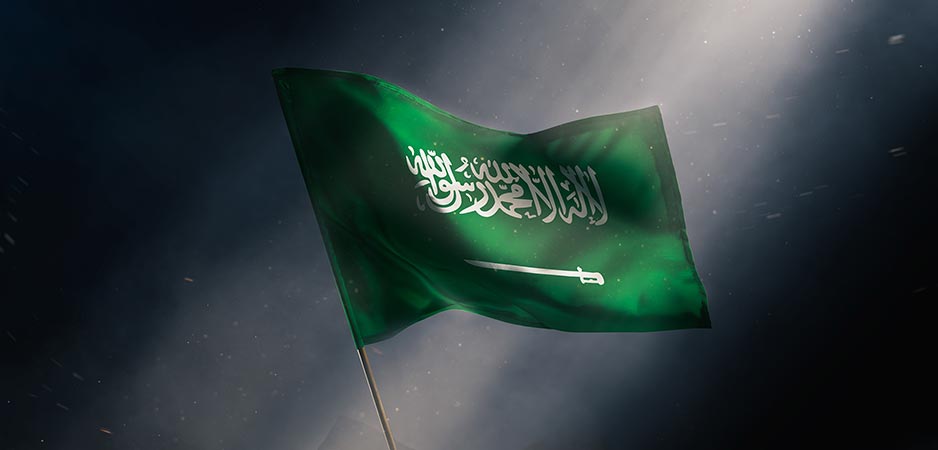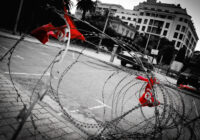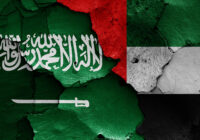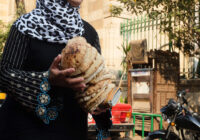Thanks to the gruesome murder of Saudi journalist Jamal Khashoggi in 2018, everyone who may have previously been indifferent to the brutally repressive nature of the Saudi regime should have no illusions about its absolute commitment to repression.
Before the Khashoggi assassination, readers of New York Times opinion writer and best-selling author Thomas Friedman followed the journalist’s lead in believing that enlightenment had come to the Arabian Peninsula in the form of a young crown prince who embraced Western technology and Friedman’s neoliberal ideals. Even as the promoter of the dreadful war on Yemen, Saudi Crown Prince Mohammed bin Salman (MBS) appeared to some Westerners as the visionary reformer who could turn the Saudi kingdom into a desert utopia, a wealthy province of the global empire.
Since the assassination, and the immediate backlash it provoked, Western media have demonstrated a certain patience, if not indifference, that has allowed MBS and the Saudi regime to progressively mend the bad PR spawned by the Khashoggi affair. In the US, several of the Democratic presidential candidates in the most recent debate proudly claimed they would punish Saudi Arabia for its crime. Yet they left the impression that it was less about justice for the murdered journalist and more about condemning President Donald Trump for his apparent complicity.
Now, according to the London-based Saudi rights group ALQST, Saudi authorities have, as reported by Al Jazeera, “detained at least eight people” who “were taken from their homes in the capital Riyadh and the Red Sea port city of Jeddah last week by plain-clothes police.” The article describes them as “activists, including journalists, writers and entrepreneurs” and cites their names.
This story echoes an earlier one reported by Reuters in April when seven activists were arrested. In the latest story, we learn: “Those detained are not frontline activists, sources told the Reuters news agency. Some are intellectuals who have published articles or appeared on television while others are entrepreneurs.”
Here is today’s 3D definition:
Frontline:
In traditional warfare, the part of an army that is most exposed to the enemy and, therefore, considered the most vulnerable to be attacked. For modern despotic regimes, the frontline designates the least vulnerable opponents of the regime, those who because of their high visibility are protected from the government’s brutality precisely due to the fact that mistreating them could attract attention and damage the regime’s image.
Contextual Note
The articles on dissident arrests that appeared in April and now November reveal the pattern in the Saudis’ revised strategy. It stems, logically enough, from the PR disaster occasioned by the Khashoggi killing. The fallout from that macabre event has convinced the Saudi authorities that their continued campaign of repression must be concentrated on opponents whose identity is obscure enough for the international media to refrain from reporting the news and especially from following it up.
The Saudis now understand that they can accept the annoyance of allowing a few high-profile activists to sting them occasionally with their criticism, so long as their far more numerous followers can be effectively silenced.
By indiscriminately arresting and eventually torturing, if not killing, the relatively anonymous personalities who dare to criticize the regime, Mohammed bin Salman expects that the entire population will quickly understand that even mild protest or mere public criticism may endanger their lives and livelihoods.
Moreover, MBS now understands that he can’t control the message outside the kingdom. He has decided to focus on tightening control within his borders and let the high-profile critics spout their poison, though they too have already learned a lesson with the Khashoggi affair and understand that it’s in their interest to tone it down. If ordinary Saudis understand that they are the ones at risk, MBS can truly say: Mission accomplished.
Historical Note
Among the eight people arrested In April, two were dual US-Saudi citizens. The journalist Salah al-Haidar has none of the notoriety of Jamal Khashoggi. Bader al-Ibrahim, a doctor and author of a book about Shia politics, is a distinguished scholar but his book is unlikely to have been a best-seller in any market.
Although many news services, including CNN, reported the arrests in April, they gave no information about the identity of the individuals, which immediately meant there would be no follow up to the story, no “human interest.” To this date, the public has no way of knowing the fate of those arrested.
ALSQT has maintained a file on Salah al-Haidar’s arrest. Updated on September 9, it simply indicates that he is being held in al-Ha’ir Prison, Riyadh, and contains no information on the crimes he is charged with. A similar file exists for Ibrahim. The information concerning both men reads: “Arbitrary arrest; denied access to a lawyer.” For Ibrahim, the file adds, “denied contact with his family; placed in solitary confinement.”
UN rapporteur Agnès Callamard spent six months investigating Khashoggi’s murder and concluded — consistent with the assessment of the CIA — that MBS gave the order for the assassination. Business Insider highlights the fact that shortly after the publication of Callamard’s report, “Mohammed bin Salman smiled in a picture with world leaders at the G20 summit in Osaka.”
Callamard commented: “The incident demonstrated the cowardice of the international community. When Donald Trump does something like this, it is one thing. But it is unacceptable that European leaders, like Angela Merkel or Emmanuel Macron, have joined this travesty.”
Some in the media, especially in the US, do return to the question of MBS’ guilt on occasion. It remains a high-profile story that intrigues the public. In what was billed as a hard-hitting interview with the crown prince, CBS recently revived the subject of his guilt, but the interview stopped short of eliciting a confession. It ended up focusing more on Iran, the common adversary of the US and Saudi Arabia, a point in MBS’ favor.
When toward the end of the interview, after perfunctorily skirting the question of the war in Yemen, the CBS interviewer, Norah O’Donnell, came back to the question of arbitrary arrests and torture, she allowed MBS to blame it all on the laws, with which he claims he “might disagree” but must dutifully uphold.
When O’Donnell evoked torture, as with the Khashoggi affair, MBS again pleaded ignorance: “If this is correct, it is very heinous. Islam forbids torture. The Saudi laws forbid torture. Human conscience forbids torture. And I will personally follow up on this matter.”
O’Donnell concluded her interview with the question: “What lessons have you learned? And have you made mistakes?”
Delighted to point to the eternal problem of human frailty (which has never diminished a despot’s ability to inflict voluntary harm), Mohammed bin Salman reassured CBS’ public: “Even prophets made mistakes. So how come we, as humans, expect not to make mistakes? The important thing is that we learn from these mistakes and not repeat them.”
So what has MBS learned? As mentioned above, the regime now knows it must avoid targeting high-profile critics and focus on individuals in whom Western media will show no durable interest. That marks a strategic change, but it hardly modifies the substance of its policies. What MBS’ explanation and the continuing arrests really make clear is how much hasn’t changed, despite the learning experience.
The German website Welt, reporting in July, three months after the arrest of eight dissidents in April, fatalistically concluded: “Their arrest clearly shows that even after the Khashoggi affair, the Saudi Arabian royal family is unwilling to embark on a new liberal course.”
Thomas Friedman will be disappointed.
*[In the age of Oscar Wilde and Mark Twain, another American wit, the journalist Ambrose Bierce, produced a series of satirical definitions of commonly used terms, throwing light on their hidden meanings in real discourse. Bierce eventually collected and published them as a book, The Devil’s Dictionary, in 1911. We have shamelessly appropriated his title in the interest of continuing his wholesome pedagogical effort to enlighten generations of readers of the news.]
The views expressed in this article are the author’s own and do not necessarily reflect Fair Observer’s editorial policy.
Support Fair Observer
We rely on your support for our independence, diversity and quality.
For more than 10 years, Fair Observer has been free, fair and independent. No billionaire owns us, no advertisers control us. We are a reader-supported nonprofit. Unlike many other publications, we keep our content free for readers regardless of where they live or whether they can afford to pay. We have no paywalls and no ads.
In the post-truth era of fake news, echo chambers and filter bubbles, we publish a plurality of perspectives from around the world. Anyone can publish with us, but everyone goes through a rigorous editorial process. So, you get fact-checked, well-reasoned content instead of noise.
We publish 2,500+ voices from 90+ countries. We also conduct education and training programs
on subjects ranging from digital media and journalism to writing and critical thinking. This
doesn’t come cheap. Servers, editors, trainers and web developers cost
money.
Please consider supporting us on a regular basis as a recurring donor or a
sustaining member.
Will you support FO’s journalism?
We rely on your support for our independence, diversity and quality.






